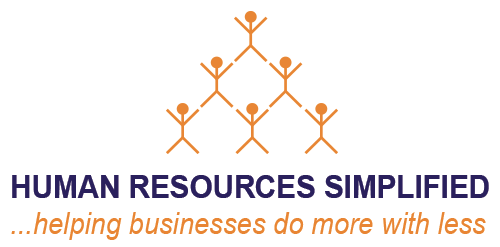 Q: What are you seeing as a major need of small businesses in your role as their interim CFO and/or assisting them to get to their next level of growth?
Q: What are you seeing as a major need of small businesses in your role as their interim CFO and/or assisting them to get to their next level of growth?
A: The biggest single need that I see at small businesses is the need to have sufficient and appropriate financial data management to support the decision making process of these businesses. So many business owners that I meet say that the financial data that they receive or can get from their financial reporting systems only helps them stay in compliance with regulatory and tax type of bodies. It helps the owner play defense, if you will, but does nothing to support the offense – the direction and growth of the business.
Q: What kinds of things should a modern competent financial system be able to do for the company owner or leader?
A: The financial systems that are in general use for small businesses can readily produce the data that is needed by business owners. It is how the systems are set up, used on a recurring basis, and maintained to adjust to the dynamics of the business that are key having the financial reporting system support business management. Properly done, these systems will produce timely, accurate and meaningful financial data.
Q: I hear the terms metrics, big data, and analytics; what is meant by that?
A: Metrics are typically key performance indicators that help management have meaningful measurements and indicators of the health and progress of a business. Big data is a tool that is only used in limited amounts, generally, by small business, as is analytics.
Q: So not just storing the data is needed but the ability to retrieve it in the form of useful reports is needed too, right?
A: There is a lot to be said about this question! How data is captured, processed and presented is the key to making financial data useful. There are a number of ways to capture and utilize data to prepare financial statements. Every business has unique needs for information and choosing among the variety of ways to capture, process and present data is crucial to a business having the tools that it needs from the financial area.
Q: What would be some typical reports that should be set up for proper management control?
A: There is no templated solution to what reports are needed by a business. The basic financial statements including a balance sheet and income statement are the building blocks for all of this. But beyond these very basic reports, businesses need to evaluate what information is needed to run the business and what kinds of reports will support that. Very often, custom reports fill this void. Oh, and keeping close track of customer receivables, accounts payable, and debt are key too.
Q: Let’s jump back to initial data entry of the information. In my experience, garbage in…garbage out. How do handle this task up front with a new system?
A: Well, the age of a system is not really an issue, as the same principles apply to a new or an old system. A well thought out system of internal controls is one of the primary ways to ensure that data capture is done properly and timely. Internal controls are basically procedures designed to create an efficient flow of information into the accounting system and also works as a first level preventive measure against fraud and inaccurate financial data. Also, along these lines, when hiring a person who will keep the books for a business, often times great emphasis is placed the skill that a candidate has with the software being used – generally QuickBooks for small business. Well, that’s helpful to know how to get a check out of the system or how to invoice a customer efficiently, if you will, but understanding what and how the financial information of the company needs to be kept is so much more important than the software system. A bright person will quickly pick up the way to use a financial reporting system, but a lack of knowledge about the accounting/reporting needs of the type of business a person is joining is a fatal flaw to their ability to be productive and a contributing member of the organization.
Q: Another problem that I have seen is, after the setup, failure to timely enter the ongoing information so that the reports are current. Is this a problem also?
A: Interestingly, timely input of data is a frequent issue for small businesses. The person in charge of making this happen often wears multiple hats and setting priorities within any given area of responsibility can be challenging. Another interesting aspect of this question is how non-financial people often use mid-month financial data. So many non-financial folks that I know look at a financial statement prepared as of, say, the 15th of the month and expect to have a pro-rata look at how the month will shape up. Because billing procedures generally occur timely, sales are generally recorded as they occur and are reasonably accurate at any point in the month. But the data to record costs for the most part does not come in pro-rata during the month and therefore is not recorded until it is available. This make a mid-month or report at any time other than after the books are closed to be incomplete and not to be relied upon.
1.Are their tiers of software programs that you would recommend based upon cost?Well, QuickBooks in its multiple versions is ubiquitous and serves the purposes of most business during the early to mid-growth stages. One of the advantages to using QuickBooks is that so many financial people are trained on it that the sudden departure of someone in the accounting area can generally be made without
2.Well, QuickBooks in its multiple versions is ubiquitous and serves the purposes of most business during the early to mid-growth stages. One of the advantages to using QuickBooks is that so many financial people are trained on it that the sudden departure of someone in the accounting area can generally be made without significant need to orient to the system in use.
Q: I use QuickBooks as my accounting program and I know there are a lot of versions of this program depending upon the type of business you have. What are your thoughts on this?
A: See above!
Q: I know there are other feature-rich full solution programs also, can you tell me about some of them?
A: Jean, I think QB is the solution for most businesses and this question would not provide meaningful additional info. But, in my opinion, it takes an expert to match the needs of the company with the best product, so that you buy the best product for the type and size of your business, right? But, even within the world of using QuickBooks, choosing the right version to support the needs of the company is critical. Even more important is the set up and maintenance of the system. I see so many companies criticize QuickBooks as producing erroneous, misleading, or inappropriate reports when in fact the reason that those results are occurring is because the system was not set up properly to start and/or the system has not been properly maintained and adjusted as the business grows. I am not necessarily an advocate of QuickBooks, but it usually works and fills the basic needs when properly used.
Q: So do small businesses need a full time in-house accountant or bookkeeper? Is there a rule of thumb about this in the world of finance?
A: Once again, there is no templated answer to this question. The work required to keep the books for a company that is a manufacturer which purchases raw materials and produces a completed product is substantially more complex and the work and skill set required to keep the books for a service business 2 to 3 times the size of the manufacturer.
Q: What are the laws that affect a small business in the financial management realm?
A: Well, the laws that surround taxation are the most common that small businesses need to be on top of. There are also regulatory compliance issues with the state and local governmental bodies. These are most common.
Q: What else is important for small business owners to consider?
A: The 50k foot question is how much importance will a business owner put on the usefulness of having timely, accurate and meaningful financial information available to help him or her, or the management team, run the business. The answer to that question drives the quality of the person/people that are hired for the financial reporting system, and the investment in the tools to support the financial reporting function.
Q: Describe a successful client situation/example that you have been involved in for a turnaround that enabled better company management?
A: The number one contribution that I make with clients is helping them achieve the production of timely, accurate and most of all, meaningful financial data from their financial reporting system. This is like lifting the fog and allowing a business to see where it is and where it is going, and to develop a meaningful plan for the future with the ability to measure against that plan with key metrics. I strongly believe that if you put timely, accurate and meaningful information in front of a savvy business owner, they will more often than not make the right decisions for their business. Oh, and having a financial go forward plan – budget or forecast – and measuring against it is the other major contribution that I bring. A properly prepared budget or financial projection is really a process of quantifying the operating plan for a business. So, although the result of creating a budget or financial projection is a set of financial data, the exercise of preparing such should allow management of a business to crystalize their thinking on the operating plan for the business moving forward. The numbers in a plan change as soon as the “ink is dry on the page”. But the operating is the item of permanent value that comes from such an exercise if properly done.
Q: I work with interim, part time, and full time CFOs in my role doing interim full time and part time virtual human resources. What is your experience working collaboratively with a human resources expert?
A: The outsourcing of business functions such as that of senior financial management or high level human resource management is well accepted today. Collaboration among those professionals that serve a business is key to everyone’s success.
Q: In conclusion, what should someone pondering a start-up business take into consideration as the important things to do and in what order?
A: The answer to this question will be a book I am going to write in the near future. This is a very complex question. But I will say that one of the keys to a successful start of a business is having well prepared and well thought out pro forma financial data, prepared on both an accrual (reporting) basis as well as on a cash basis. Understanding fundamentals such as how much cash it is likely to take to get a business off of the ground, what the cost of infrastructure to support the business is, the breakeven point, or the amount of sales needed to cover overhead and other operating costs, and the likely are generally results of solid financial planning. Entrepreneurs generally know their product and how to produce it. Understanding cash flows and profitability going into the venture is one of the keys to having a complete tool set for ownership. And, as I mentioned earlier, this planning process, if done properly, will cause management to articulate the operating plan for the future, and help crystalize their thinking about the plan for the future.
Ray Reher is the owner of Innovative CFO Solutions, Inc. (http://www.innovativecfos.com/) and he has over 30 years of experience serving as Chief Financial Officer for emerging growth and middle-market businesses. His “Interim CFO Solution” solves client needs when the senior financial manager position in the company is vacant or when high-level supplementary staff is needed to timely meet important financial objectives. You can reach him at 941.378.9801 .

Jean (JJ in HR) is a certified senior-level human resources executive/consultant, adjunct professor, management trainer, professional speaker, resume writer, career coach, LinkedIn profile builder, and published author.









